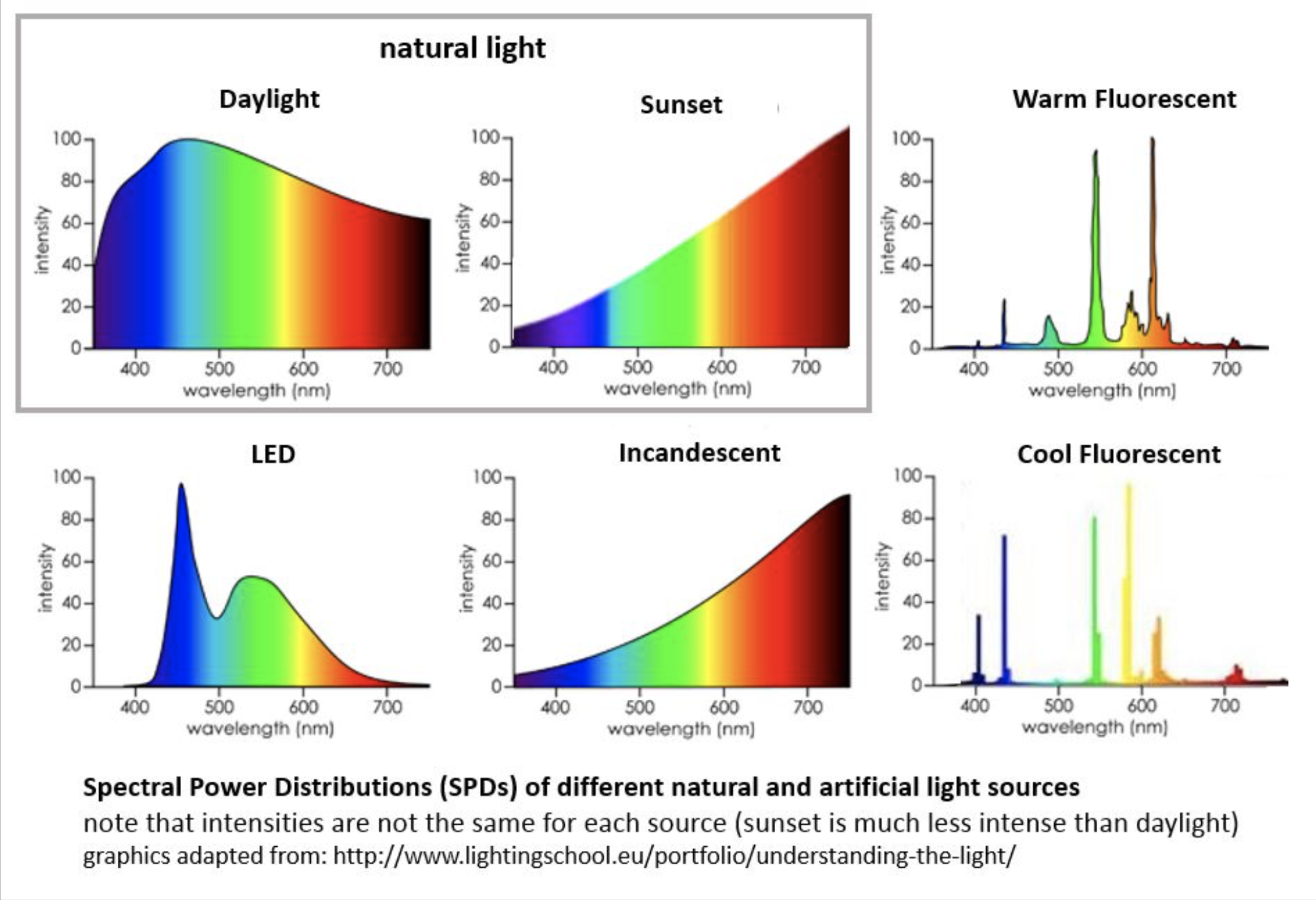How does blue light affect your melatonin production?
By now most of us have heard about blue light and the damaging effects it can have on our health, but what is exactly happening? How is it affecting our body? What about natural blue light? How can I protect myself from over exposure to artificial blue light?
First, What is Blue Light?
Light is comprised of particles that travel in wave, which emit energy. Light contains a spectrum of colors. Red light at one end of the spectrum with long wavelengths, producing less energy, and blue light on the other end with short wavelengths and higher energy. Sunlight contains the balance of all the colors in the visible spectrum of light.
All artificial forms of light produce unnatural spikes of light, specifically blue and green light.
Blue light is discussed in regards to sleep because of its ability to penetrate deeper into our eyes, disrupting our sleep/wake cycles. In the morning, when blue light first enters our eyes, it gets registered by the photoreceptors, telling our body it's time to wake up. Similarly, our sleep cycle gets activated by the environmental changes of light dimming and darkness coming on.
What happens when we change our light reality at night through artificial means?
Understanding Melatonin
The production of melatonin in our body is a way of informing us it's time to restore and sleep. When our environment gets dark our body naturally begins to release melatonin into the bloodstream. Melatonin production naturally reaches its peak after midnight and is lowest during the day.
If our eyes can't register the growing darkness then our body will not naturally begin to release melatonin. Could this be why some of us never feel sleepy? Absolutely! When we turn on our artificial lights at night we are telling our body through the light (mainly blue and green light) to stay alert and awake.
Consuming a steady diet of artificial light is no way of expecting your body to stay healthy and for you to feel your best.
What Can I Do About It? I need Light Past Sunset.
Turn off TVs, phones and computers at minimum 1 hour before bed.
Place red light bulbs in places you need light and frequent at night, i.e. the bathroom.
Wear effective blue and green light blocking lenses at night. Here at Light Shaping Life we offer a variety of lenses to choose from and note that the red glasses block 100% of blue light and 80% green light from your eyes. Allowing your body to start releasing melatonin and beginning to repair without having change your whole lifestyle to be in bed by sunset.

